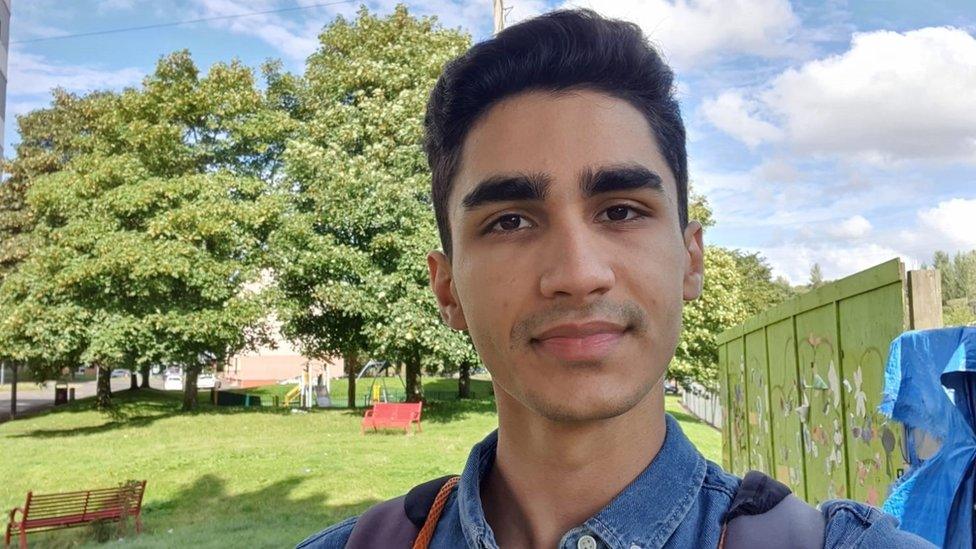'If I buy a bus ticket I can't eat for two days' - asylum seeker Aymen
- Published
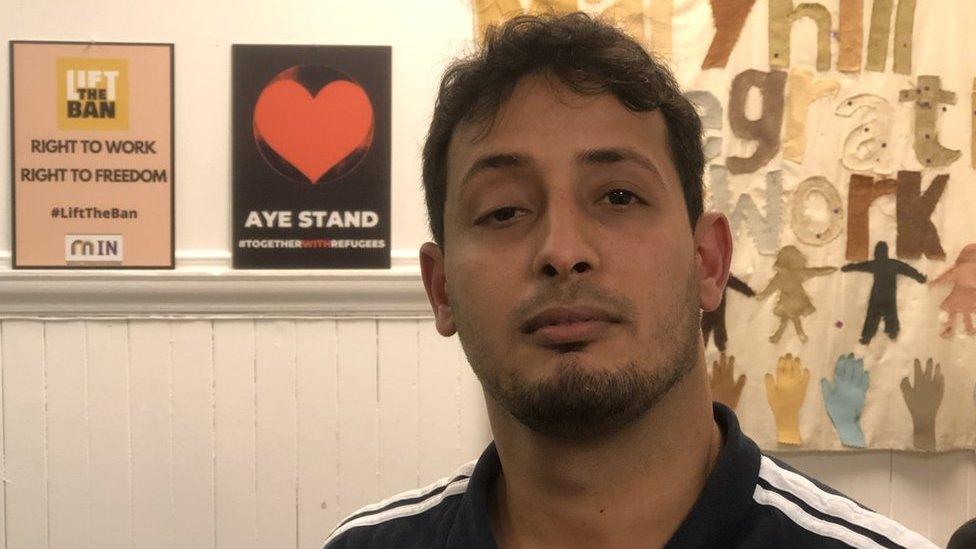
Aymen Alkhawlani, 31, worked as an English teacher in Yemen
Aymen Alkhawlani wakes each morning and asks himself the same question: Do I buy a bus ticket and go hungry, or eat and be alone?
Such dilemmas are familiar to people in the UK asylum system.
With most barred from working, they rely on UK government support. Typically this is £40.85 a week, or £5.84 a day. Others in hotels are given £8.24 a week, or £1.18 a day.
Aymen is one of several people in the asylum system who have spoken to BBC Scotland about the crisis they face as the cost of living soars at the fastest rate in 40 years. The self-titled "new Scots" want to be allowed to work while awaiting decisions on their applications.
The Home Office says its payments are to cover essential needs for people "who would otherwise be destitute".
But recipients say they are often unable to afford transport, good quality clothing, food, internet access and medicine.
Aymen is from Yemen and arrived in the UK in April 2021. He was placed in a hotel in Falkirk for a year before getting Home Office accommodation in Airdrie in October.
He said he feels alone and cannot afford to buy return train or bus tickets for the 30-minute trip to Glasgow where he meets up with other people in the asylum system.
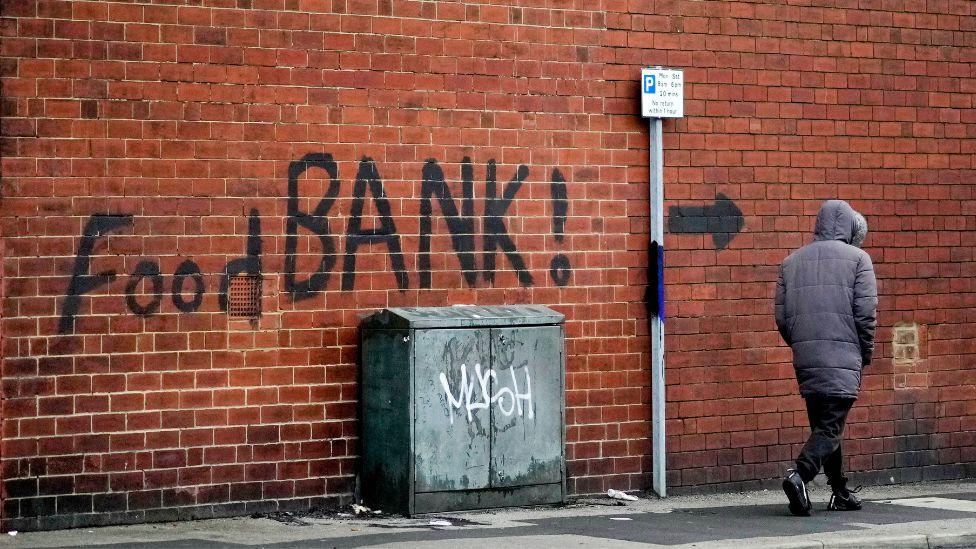
He explained: "The only way to meet people is to go to Glasgow. And I need to spend a lot, at least £10, to go to Glasgow and back.
"If I decide to go to Glasgow, I won't be able to eat for two days."
There are approximately 5,200 people in the asylum support system in Scotland with about 4,700 accommodated and/or financially supported by the Home Office. They can apply for £40.85 per week from the UK government.
Some can request permission to work if they have been waiting for more than a year for a response on their claim, but most of those granted permission are only allowed to work in jobs on the official shortage occupation list, external, which was recently expanded to include nursing and care roles.
Aymen says he is only given about £35 a week because he received an extra £40 payment when he was offered housing in England, which he rejected.
He said he will not receive the full weekly allowance until he pays back the £40, which he says he has no way of doing.
The 31-year-old, who worked as an English teacher in Yemen, said: "I can't even eat three meals a day nowadays because I only receive £35 a week. I have to skip dinner most of the time. Breakfast and lunch is pretty much all I have."
He added: "Because I don't have the money to buy bus tickets, I stay home all the time. So that also adds to my depression."
For those in hotel accommodation, which is provided by private contractors, the level of government support is lower.
In Scotland, between 500 and 600 people in the asylum system live in 10 hotels across eight local authorities.
Since they are provided with "full board", they can only apply for £8.24 in support per week, or £1.18 a day. The Home Office says this should cover clothing, non-prescription medicine and travel.
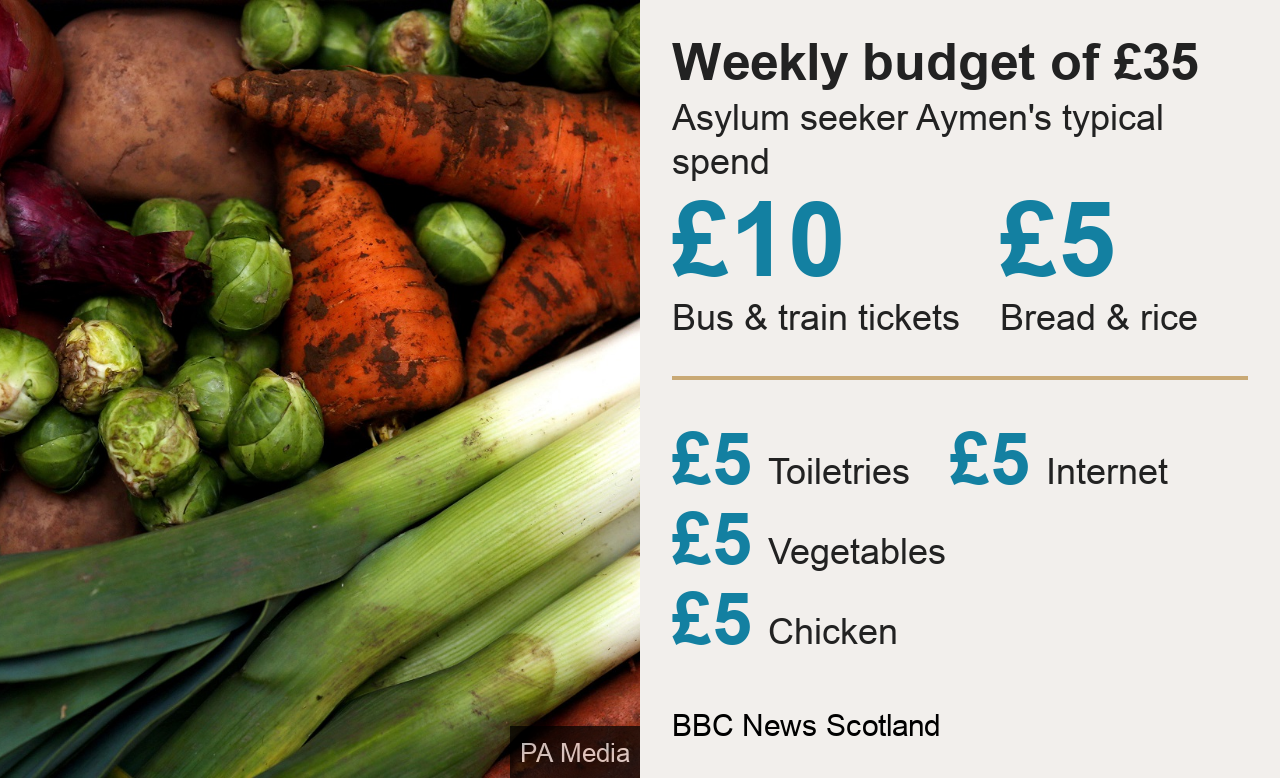
But Hawre, a Kurdish man in his 30s who asked to remain anonymous, said: "The £8 does literally nothing, especially in this cost of living crisis."
"We can't even go to a barbershop to get a haircut.
"We are at the point where we give each other haircuts, regardless of the quality of what we can do."
'Less than human'
He has spent a year in a hotel in Aberdeen, awaiting news on his asylum application.
Having worked as a painter and decorator in Iraq, Hawre says he is frustrated about his inability to earn his own money.
He explained: "Financial gain wasn't something on my mind when I came here. If I didn't have a big issue in Iraq, if it wasn't life-threatening, I wouldn't come here to live under these circumstances living on £1 a day.
"It makes me feel less human, like we're being treated inhumanely."
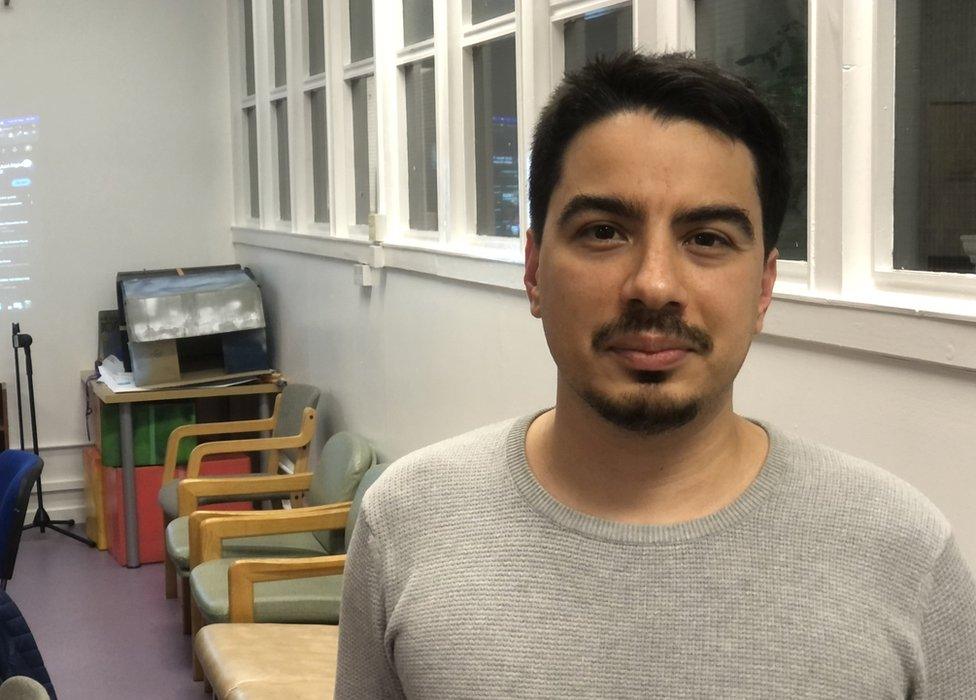
Herberth, 35, is from El Salvador and currently lives in Glasgow with his partner
Herberth, a poet from El Salvador, arrived in Scotland in April having also fled his home country due to fears for his safety.
He applied for financial support in October but has been told he is unlikely to hear back until January.
Herberth lives in Glasgow with his partner, a UK citizen, so does not rely on Home Office housing support. But he says not being able to earn money is damaging his mental health, as well as his finances.
'Stressful situation'
The author of two poetry books in his homeland, the 35-year-old is studying for a psychology degree which he started in El Salvador but can complete online.
He would like to study for a masters degree in clinical psychology in Scotland, but he is struggling to get access to higher education due to his immigration status.
Herberth has managed to enrol on an advanced English course at City of Glasgow College. "That's a big help," he said. "But of course, I would like to get a job, study here in Scotland, those type of things I'm missing out on and it's affecting my life. I'm 35 years old and I'm in my most productive years and I'm unable to work, so it's a very stressful situation."
The Maryhill Integration Network (MIN), an organisation which supports people in the asylum system in the Glasgow area, provides a haven to both Herberth and Aymen.
Pinar Aksu, human rights and advocacy coordinator at MIN, said: "With the cost of living crisis, people seeking asylum are forced to live in extreme poverty having to choose between buying food, clothes, or travelling."
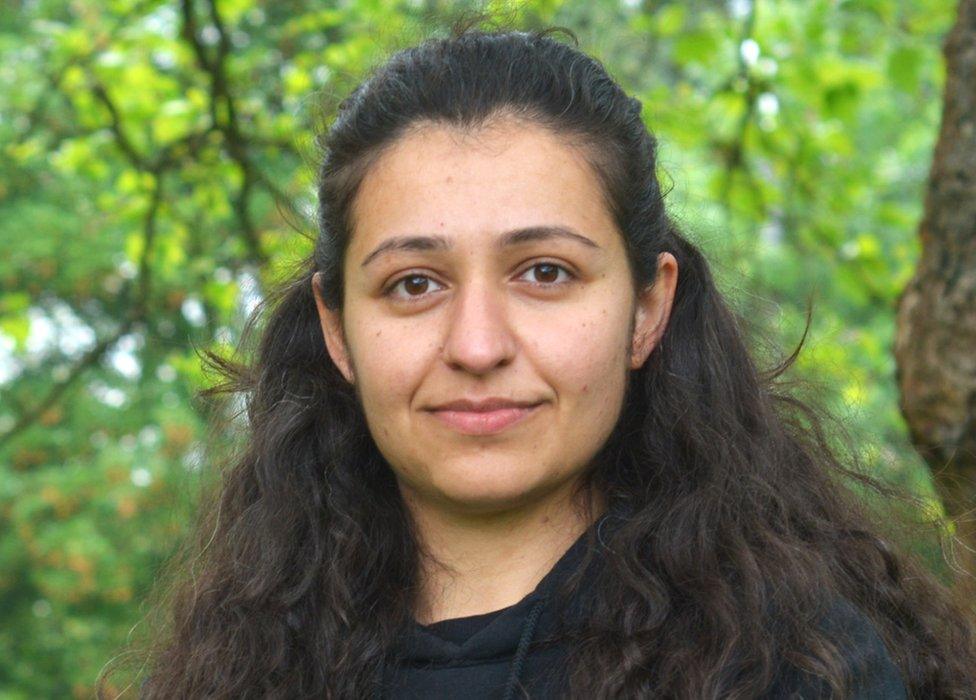
Pinar Aksu is from asylum seeker support organisation the Maryhill Integration Network
She backed the Lift the Ban coalition, a campaign urging the UK government to give people the right to work after six months in the UK.
MIN has also called on Holyrood to follow the Welsh government by providing free bus passes for people seeking asylum. Aksu said the move would allow people to travel without being "forced to pick between food, travel and essential needs".
The Scottish government said it continued to consider plans to provide free bus travel to refugees and people in the asylum system.
Campaign group Refugees for Justice told BBC Scotland that people in the asylum system are especially vulnerable during the cost of living crisis, and called for the UK government to increase weekly payments.
'Broken system'
A Home Office spokesperson said the Nationality and Borders Act, which became law in June, "will fix the broken asylum system" by speeding up the application process and "focusing on those genuinely fleeing persecution".
They continued: "For asylum seekers who would otherwise be destitute, we provide accommodation and a weekly allowance for food, clothing, transport and sundries.
"The Home Office ensures all spending is carefully scrutinised to make sure that every pound of taxpayers' money is spent in the most effective way. We review the allowance rates on an annual basis and we have commenced this year's annual review."
- Published17 June 2022

- Published11 November 2022
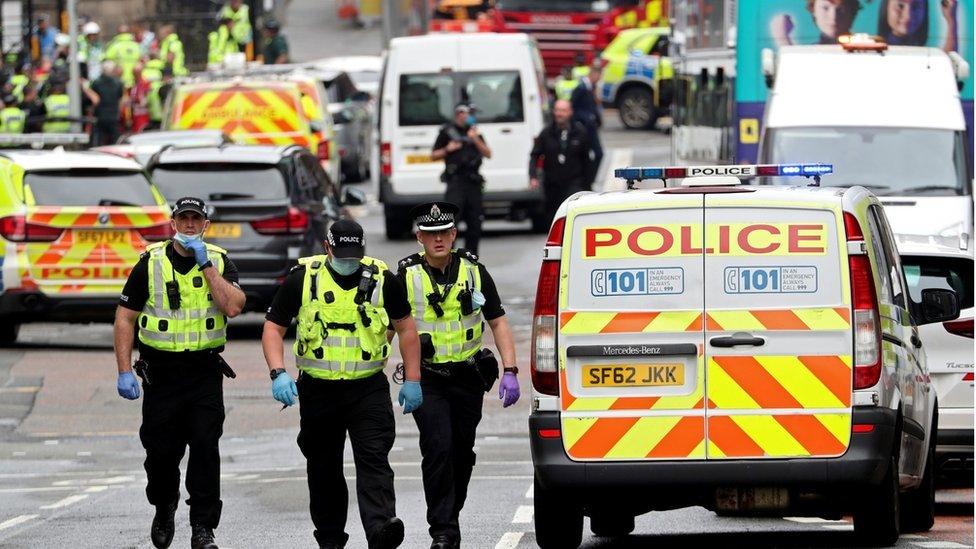
- Published25 August 2022
